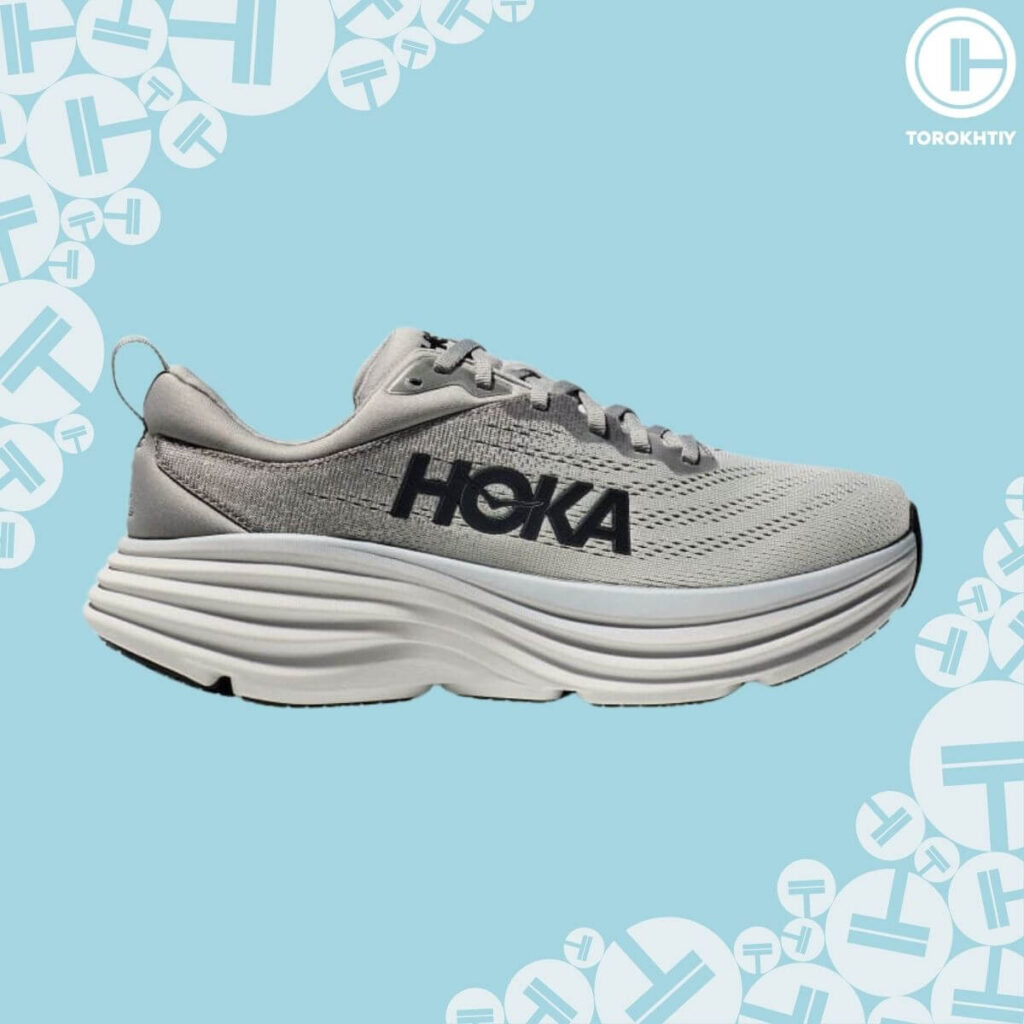Why Do My Ribs Hurt After Running? Causes & Solutions
Author:
Unlock your full potential by engaging with our experts and community! Have questions about your fitness journey or looking for expert advice on weightlifting techniques? Don’t hesitate — leave a comment below and Oleksandr Zagrebelnyi will provide a personalized answer and insights to help you reach your goals.
Torokhtiy is reader-supported. Some links are affiliate links, and we may earn a commission at no extra cost to you. See our disclosure page for details.
Running is a popular exercise that many people enjoy for the benefits it provides. However, it can also cause discomfort, especially regarding rib pain. So you may ask yourself – why do my ribs hurt after running?
Rib pain after or during running is common, and various factors can cause it.
So, why do my ribs hurt while running? Why do my ribs hurt after working out? Let’s figure it out together! In this blog post, we will discuss why your ribs may hurt and what you can do to relieve the pain.
There are many reasons for pain in ribs when running. If you do not have serious diseases, you can get rid of pain and prevent it with the help of some simple rules, which include breathing, warm-up, hydration, and good posture.

Chest Pain During Or After Running: Some Of The Possible Causes
Chest pain can be a scary and uncomfortable experience. If you wonder “Why do my sides hurt when I run”, it’s essential to identify the cause of the pain and take appropriate measures to avoid it. Some of the possible causes of chest pain while running are:
- Ribs: Injuries to the ribs can cause chest pain while running. This may occur due to a fall, accident, or even a strong impact while playing sports. If you’ve recently fallen or experienced a traumatic injury, you may have rib damage causing your chest pain.
- Sides: Side stitches or cramps are common causes of chest pain while running. These may occur due to a bad diet, poor posture, or even dehydration. If you’ve been eating unhealthy foods or not drinking enough water, you may experience a side stitch or cramp while running.
- Muscles: The chest muscles may get strained or pulled while running, which can cause chest pain. This may occur due to overuse, poor posture, or insufficient warm-up before the exercise.
If you’re experiencing chest pain that’s severe, lasts for more than a few minutes, or is accompanied by other symptoms such as shortness of breath or dizziness, seek emergency medical attention.
In general, it’s best to consult a doctor or a physical therapist if the pain persists or worsens. Here are some medical conditions that may cause it.
1. Acid Reflux
Acid reflux is another reason for chest pain during or after running. It occurs when the muscle between the stomach and esophagus does not close properly, causing gastric acid to flow back into the esophagus. This can cause a burning sensation in the chest, which is often mistaken for heart pain. You should avoid eating a large meal before running and give yourself enough time to digest the food.
2. Heart Issues
A heart issue is the most severe reason for chest pain during or after running. Chest pain that is accompanied by shortness of breath or dizziness can be a sign of a heart attack. It is essential to seek medical attention immediately if you experience these symptoms. Runners with a history of heart issues should consult their doctor before starting any exercise routine.
Rib Pain While Running: Causes And Prevention Strategies
Many runners experience pain in ribs when running. Let’s discuss the main mistakes leading to rib pain while running.
1. Breathing Technique
One of the most typical reasons you may experience rib pain while running is improper breathing. When you run, your body requires more oxygen, and if you are not breathing correctly, you may experience pain in your ribs.
Many runners tend to take shallow breaths, which can cause tension in the rib muscles, leading to pain.
To avoid this, focus on taking deep breaths and exhaling completely. This will help you to get more oxygen into your lungs and reduce the chances of experiencing rib pain.
2. Dehydration
Another cause of rib pain while running is dehydration. When you run, your body loses water through sweating, and you may become dehydrated if you do not drink enough fluids. Dehydration can cause muscle cramps, including those in your rib muscles, leading to pain. To prevent dehydration, make sure that you drink enough fluids before, during, and after your run.
Hoka Bondi 8
- Material: Breathable and supportive mesh upper
- Sole Material: Full-length EVA midsole for maximum cushioning
- Outsole (tread feature): Durable rubber outsole with a unique lug pattern
- Drop: 4mm
- Season: Suitable for all seasons
- Special Features: Exceptional cushioning and comfort
- Size: Available in various sizes
- Type: Maximum cushioning running shoe
If you want excellent running or walking shoes or just footwear you’ll be comfortable in, you can’t go wrong with the Hoka Bondi 8.
It’s been upgraded and now they have lighter, softer materials and a new extended heel design. The heel design gives a super soft, balanced feeling from th emoment your heel hits the ground to when you push off with your toes.
As far as the weight goes, it’s around 10.80 ounces, and the heel drop is 4 mm. They’re not too heavy and the lower drop is a good balance between cushioning and feeling connected to the ground.

The Bondi 8 is focused on cushioning and keeps things simple. There’s a good amount of support without any extra stuff that you don’t really need and that would only jack up the price. Take the rear crash pad, for example – it makes for a soft, smooth ride, which is perfect if you like to run outdoors.
The upper part is made of engineered mesh, which is breathable and keeps your feet cool and dry. The tongue and collar have memory foam and mold to your foot shape. All of these features make the fit snug but flexible, which is exactly what you would want.
The Bondi 8 is eco-friendly because it uses recyclable materials in parts like the mesh and the sockliner. Plus, the shoes are completely vegan, which (if that’s important to you) is nice!
2 Reasons For Rib Pain After Running
Running is a high-impact activity that puts much stress on your body. Every time your feet hit the ground, the force of impact is three to four times your body weight. This impact can force your ribs to move, which can result in pain.
Your torso moves up and down as you run, causing your rib cage to expand and contract. So if you are wondering why do my ribs hurt when I run here are some reasons:
1. Side Stitch
One of the most common causes of pain under ribs when running is a side stitch. This is a sharp pain that is felt on one side of your abdomen, just below your ribs. The exact cause of side stitches is unknown, but they are thought to be caused by a spasm of the diaphragm muscle. Side stitches are more common in beginner runners or those who have increased the intensity or duration of their runs too quickly.
2. Poor Posture
Poor posture while running can also cause rib pain. If you are slouching or bending forward while running, this can put extra pressure on your ribcage, resulting in pain. Maintaining a good posture while running is essential to avoid unnecessary tension in your body.
3 Tips To Avoid Rib Pain While Running
If you are experiencing ribs sore after running, there are several things you can do to alleviate the discomfort. Let’s discuss some tips on how to avoid rib pain while running.
1. Proper Breathing Technique
One of the most typical causes of rib pain is an improper breathing technique. When you are running, it is essential to focus and make sure that you are breathing in a comfortable way. Try to breathe deeply and slowly, using your diaphragm to expand your lungs. This will help to prevent rib pain and will also help to improve your overall running performance.
2. Stretching And Warm-Up
Stretching and warm-up exercises are essential before beginning any physical activity, including running. Stretching your muscles, including those in your chest and back, is vital to help prevent rib pain. You can try simple stretches like arm swings, shoulder rolls, and side bends to help loosen up your muscles. A proper warm-up routine can also help to prepare your body for the physical demands of running and reduce the risk of injury.
3. Proper Running Form
Another critical factor in preventing rib pain while running is proper running form. Make sure that you are running with good posture, keeping your shoulders relaxed and your chest lifted. Avoid slouching or hunching over, as this can strain your ribs unnecessarily and cause pain. It is also vital to avoid over-striding, as it can cause your feet to land hard and pressure your ribcage.
If the pain persists, it is essential to consult a doctor to rule out serious injuries or medical conditions. They may recommend rest, physical therapy, or other treatments to alleviate your pain.
FAQ
Should I Run With Sore Ribs?
If you have sore ribs, it is generally not recommended to run. It could worsen the pain and delay the healing process. Running with bruised ribs can cause further strain on the ribs and worsen the damage. It is advisable to wait until the pain has subsided before running again. If the pain persists, it is recommended to consult a medical professional to evaluate the severity of the injury and obtain proper treatment.
Can You Injure Your Ribs While Running?
Yes, it is possible to injure your ribs while running. Ribs can become strained or bruised from repetitive impact, especially if you have poor posture or technique while running. In severe cases, a rib can even be fractured from the impact. It is important to wear proper gear and shoes, maintain good form, and avoid overexerting yourself to prevent rib pain while running.
Conclusion
In conclusion, rib pain after running is a common issue that can be caused by several factors. These include the impact of running, side stitches, poor posture, recent injuries, certain medical conditions, and running on an uneven surface.
To alleviate the pain, ensure you are breathing properly, start your runs slowly, maintain good posture, and stretch before and after your runs. If the pain persists, consult a doctor to rule out any serious issues. Don’t let rib pain prevent you from enjoying the many benefits of running!
Have you experienced rib pain while running? Please share your experience in the comments below.
Also read:
References:
- Is chest pain during exercise serious? // Medical News Today: https://www.medicalnewstoday.com/articles/323497
- Exercise-Related Transient Abdominal Pain (ETAP) // PMC: https://www.ncbi.nlm.nih.gov/pmc/articles/PMC4281377/
- Persistent Exertional Chest Pain in a Marathon Runner: Exercise-induced, Painful, Left Bundle Branch Block Syndrome Treated With His-Bundle Pacing // PMC: https://www.ncbi.nlm.nih.gov/pmc/articles/PMC6543455/
- Atypical chest pain in athletes // PubMed: https://pubmed.ncbi.nlm.nih.gov/19280769/
- Photos are made by Torokhtiy Media Team
Why Trust Us?
With over 20 years in Olympic weightlifting, strength training, nutrition coaching, and general fitness our team does its best to provide the audience with ultimate support and meet the needs and requirements of advanced athletes and professional lifters, as well as people who strive to open new opportunities and develop their physical capabilities with us.
By trusting the recommendations of our certified experts in coaching, nutrition, and sports training programming, as well as scientific consultants, and physiotherapists, we provide you with thorough, well-considered, and scientifically proven content. All the information given in the articles concerning workout programming, separate exercises, and athletic performance, in general, is based on verified data.
The product testing process is described in more detail here.
Oleksandr is a running coach and member of the Nike Run Club coaching team for 8 years. A participant in national and international competitions at distances from one kilometer to the ultra trail. Owner of mountain trail running camps. Nowadays Oleksandr is responsible for creating running training programs for athletes of various levels, coaching personally offline and online, conducts trail running camps in the mountains, participates in competitions.




Still have questions after reading our article? Unlock your full potential by engaging with our experts and community! Don’t hesitate — leave a comment below and Oleksandr Zagrebelnyi will provide a personalized answer and insights to help you reach your goals.